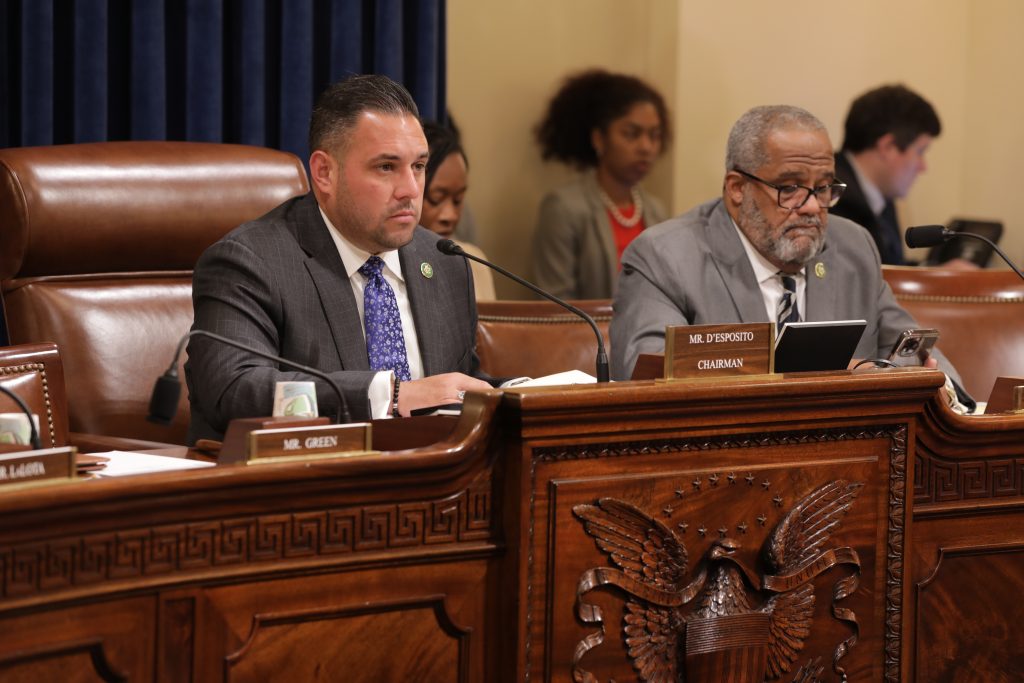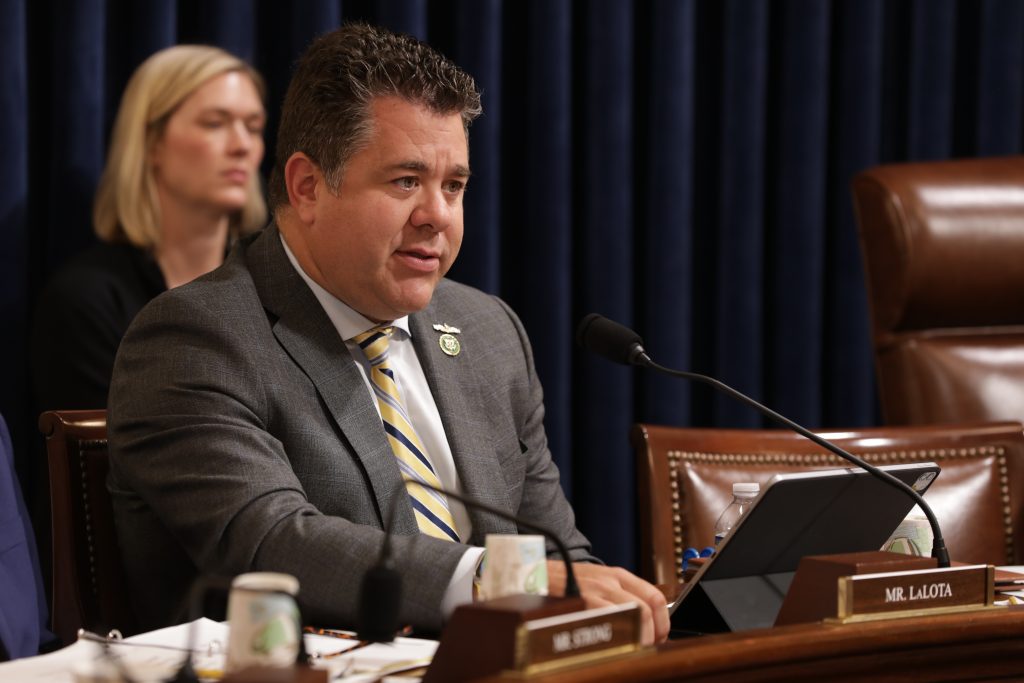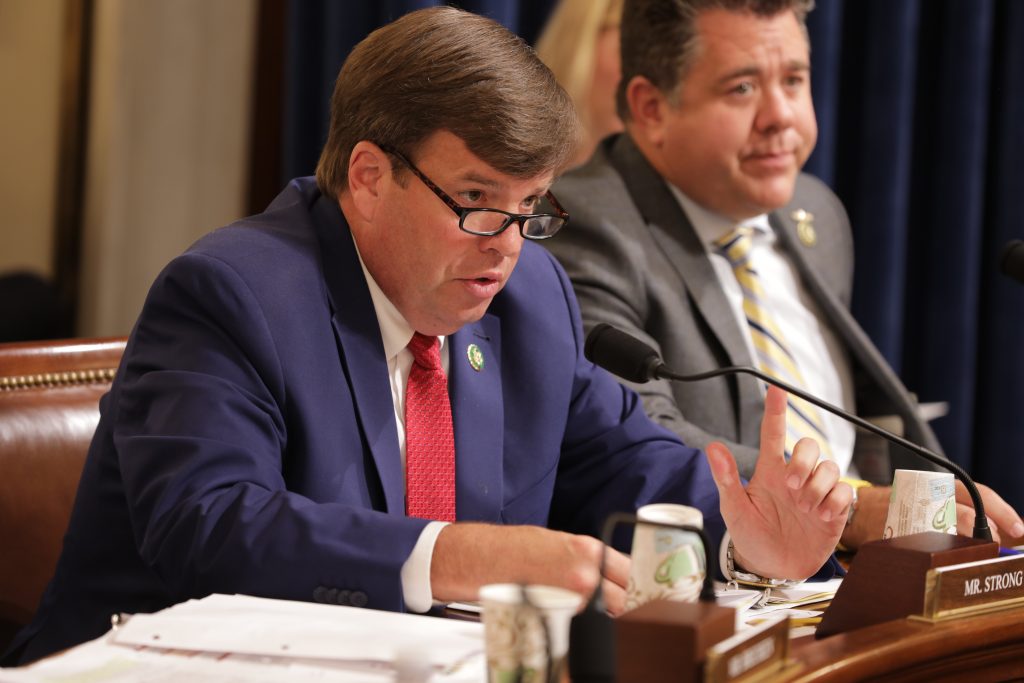ICYMI: Homeland Republicans Work to Keep FEMA Focused on Readiness, Recovery, & Resilience
July 14, 2023
Administrator Criswell testifies before Subcommittee on Emergency Management and Technology
WASHINGTON, D.C. — This week, Homeland Security Subcommittee on Emergency Management and Technology, led by Chairman Anthony D’Esposito (R-NY), held a hearing to examine Federal Emergency Management Agency (FEMA) Administrator Deanne Criswell’s vision for FEMA and President Biden’s Fiscal Year 2024 budget request for the agency.
In the hearing, Members detailed the need for FEMA to prioritize fulfilling its primary mission to prevent, protect against, respond to, and recover from terrorist attacks, major disasters, and other emergencies in support of the National Preparedness Goal. As Members highlighted, in the past few years, FEMA has been tasked with assisting with Afghan refugee resettlement, assisting with unaccompanied alien children (UACs) along the Southwest border, and with managing the federal government’s response to the COVID-19 pandemic. These expanding responsibilities come as FEMA faces a considerable staffing shortage and a growing number of disaster declarations. Administrator Criswell also confirmed the agency faces challenges in ensuring grant funding reaches smaller emergency management entities across the country.

WATCH: D’Esposito Questions Administrator Criswell on FEMA Funding at the Border
In his opening line of questioning, Chairman D’Esposito questioned Administrator Criswell on the funding in President Biden’s Fiscal Year 2024 Budget request for the Southwest border:
“Administrator, last year the Department of Homeland Security established the Southwest Border Coordination Center to, ‘Coordinate planning, operations, engagement, and interagency support.’ The President’s fiscal year 2024 budget request includes $4.7 billion for the Southwest Border Contingency Fund to respond to migration surges along the Southwest border. Given that Secretary Mayorkas has repeatedly stated that there is not a crisis at the Southwest border, why is FEMA being included in the Southwest border contingency fund?”
Administrator Criswell answered:
“FEMA is not an immigration agency. […] We do support the President’s budget, and we did participate in the development of that request, which does include, as you stated, $4.7 billion for the DHS Border Contingency Fund. Depending on the conditions and the dynamic nature of the border, what that contingency fund also provides is up to $800 million that could be available to FEMA to support our Shelter and Services Program. This will be the same level as Fiscal Year 2023.”
In his second line of questioning, Chairman D’Esposito questioned Administrator Criswell on FEMA’s commitment to ensuring communities across the country can obtain the resources they need for emergency response and resilience:
“I think one of the focuses that we’ve had on this Subcommittee is to make sure that FEMA grant funding makes its way to smaller entities. You take a district like mine, and I know many of us up here [have served through] many first responder agencies, sometimes volunteer, sometimes those groups don’t have the ability or the resources that they need to even understand how to apply for such grant funding. What is FEMA doing currently to help with outreach, to make sure that we can reach those communities, those institutions, that are smaller? […] There are so many smaller police departments, law enforcement agencies, first respondent agencies that perhaps aren’t getting what they need or don’t even meet the threshold to get that funding because they haven’t gotten it before.”
Administrator Criswell answered:
“Our grant programs have done such an amazing job of increasing the capacity and the capability and the level of preparedness across the nation. But I do still see challenges in making sure that we are building capacity across the nation as our threats are changing post-9/11. We are really increasing our level of stakeholder engagement and outreach and streamlining the way that our communities can apply for this assistance.”

Rep. Nick LaLota (R-NY) questioned Administrator Criswell on the agency’s ability to respond to the growing number of emergencies in recent years:
“I very much appreciate what FEMA has done and continues to do for affected communities across the United States. However, I’m concerned that FEMA might be stretched too thin that effectiveness may wane as their mission sets have significantly increased over the past several decades, especially during and after the pandemic. As you mentioned in your testimony, administrator, the number of declared disasters which FEMA has supported in the last 10 years has increased by 191%. […] How does FEMA plan on balancing becoming a “Resilience agency,” while also responding to a record number of disasters over the past decades.”
Administrator Criswell answered:
“We are responding to more events, which means the recoveries themselves also are more complex. We have to get ahead of that curve. We have to start working with communities before disasters in blue sky days to better understand what we can do to reduce the impact but also build their readiness and resilience. Through our resilience part of our organization, we’re taking a place-based approach, where we’re bringing in all of the services that FEMA has and bringing it to communities that we have identified through our own data that have the greatest needs, have the greatest capability gaps, to help them start to build those resilient programs and plans.”

Rep. Dale Strong (R-AL) highlighted the Biden administration’s unwillingness to secure the Southwest border to end our historic humanitarian crisis and FEMA’s priorities amid a staffing shortage:
“Since 2021, we’ve seen FEMA divert precious time, resources and manpower to deal with this administration’s border crisis. This includes diverting funds intended for American families struggling with hunger and homelessness, to illegal aliens, and by developing FEMA’s personnel to quickly expand safe and appropriate shelter and provide food, water and basic medical care for migrants illegally arriving in the United States. This all comes at a time when the agency is severely understaffed. A May 2023 GAO report found that FEMA faces a staffing shortfall of approximately 6,200 employees. In the report, FEMA officials attributed this staffing deficiency to additional responsibilities the agency has been saddled with. One can conclude that the border mission is one such responsibility that you have been saddled with. It could all be alleviated if this administration would just secure the southern border. I understand that DHS as a whole is facing staffing shortages, but pulling FEMA and other agencies away from their primary mission isn’t a solution, especially when the mission is a vital resource for those in my district. My question for you is, when Alabamians are working to recover from a natural disaster, hurricane, tornado, and desperately are waiting for FEMA trucks to roll in and give them some relief, when they’re wondering when help is coming, what do you want me to tell them?”
Administrator Criswell answered, in part:
“Our mission is to help people before, during and after these severe weather events that we continue to see. That is our focus. As the GAO report pointed out some of the staffing shortfalls, the majority of that is within our reservist workforce.”
###
